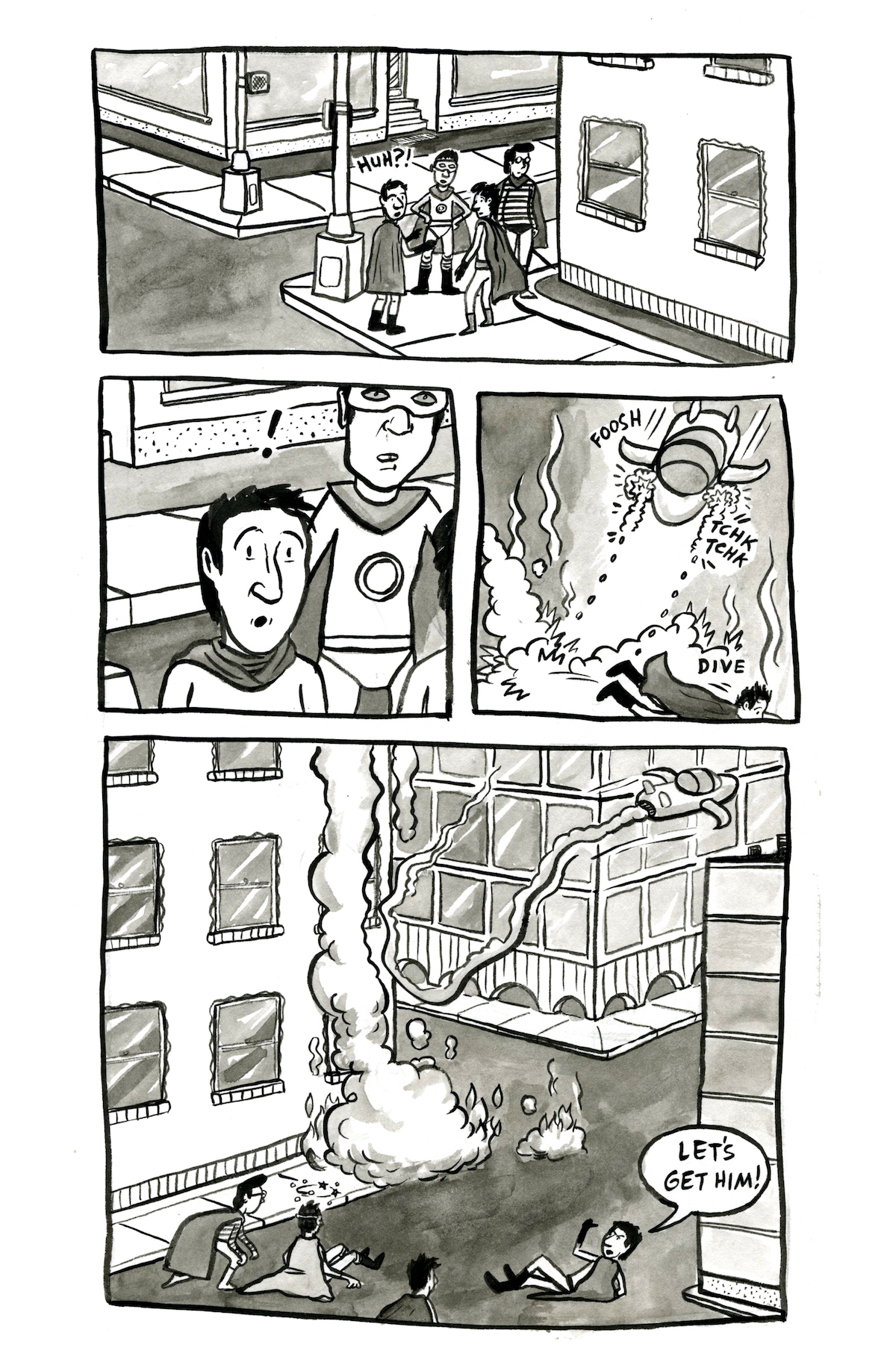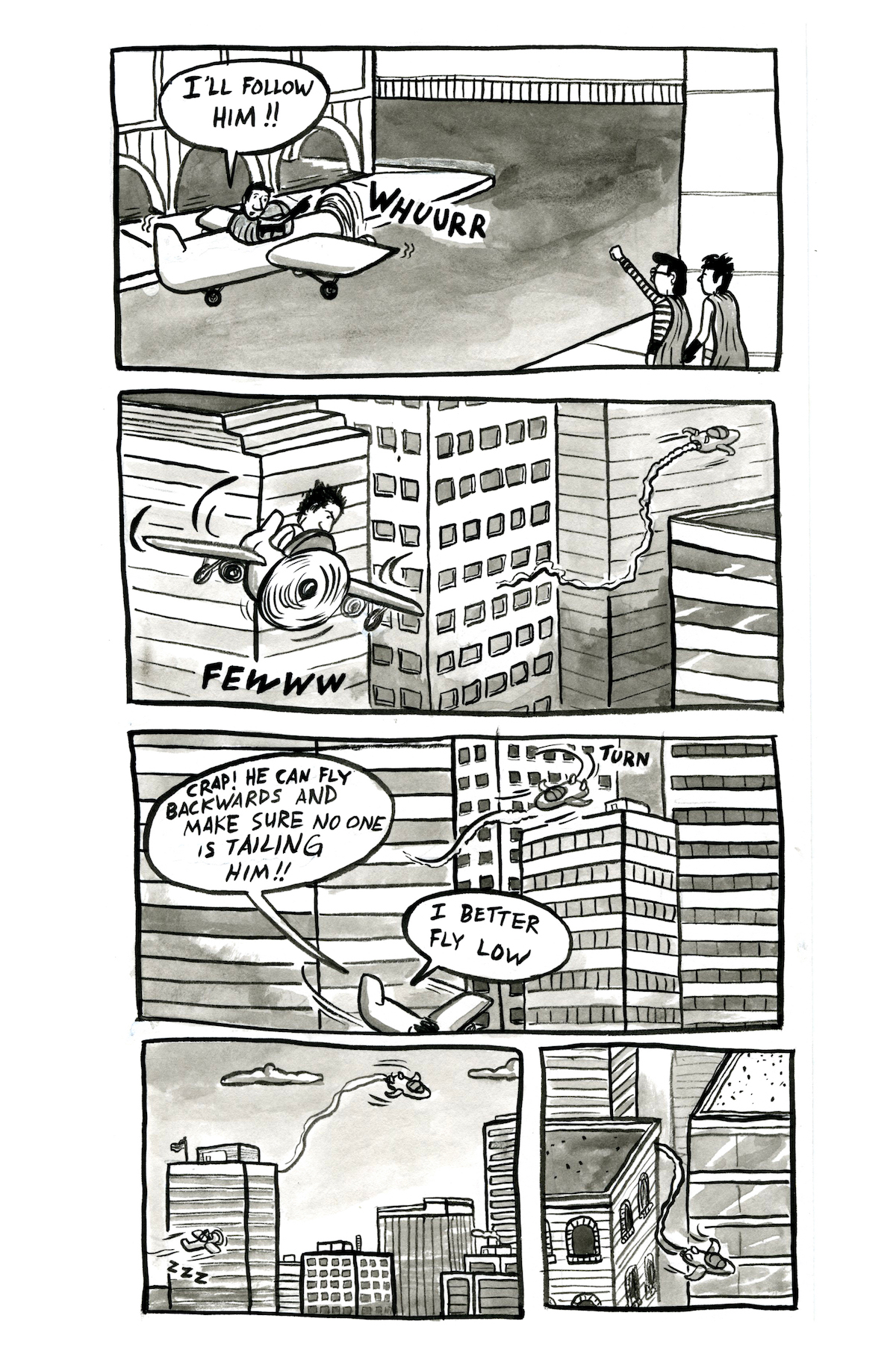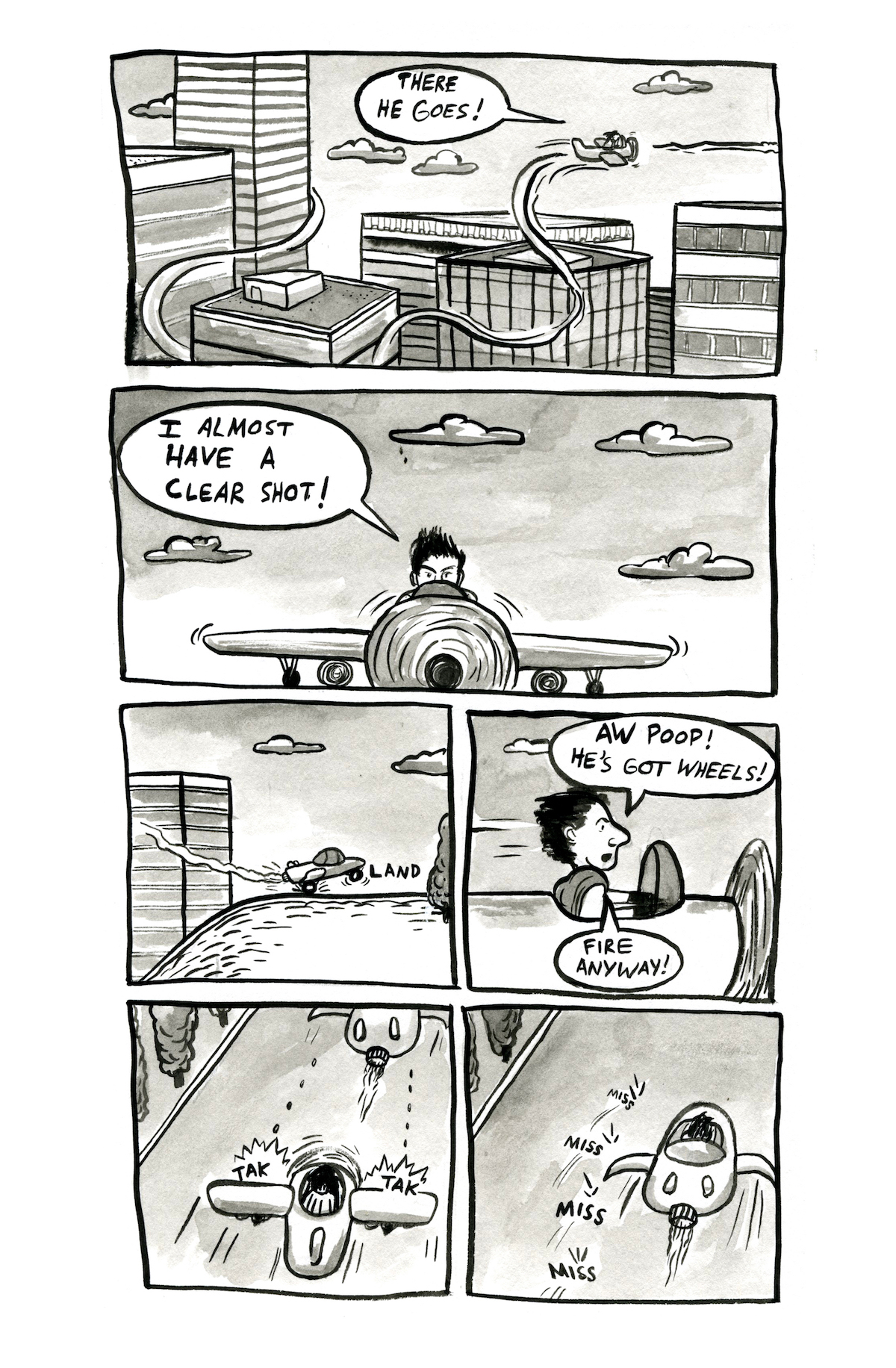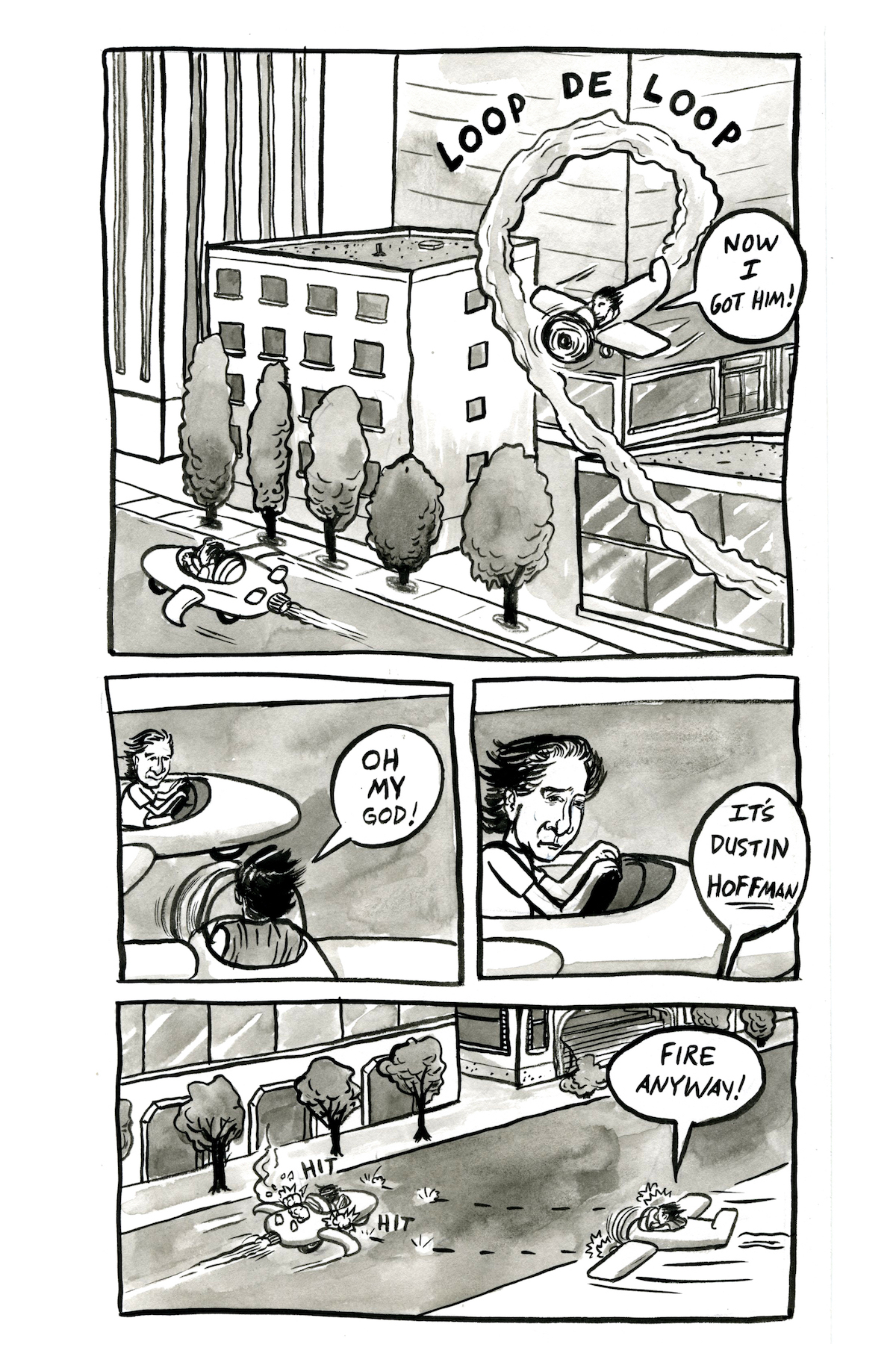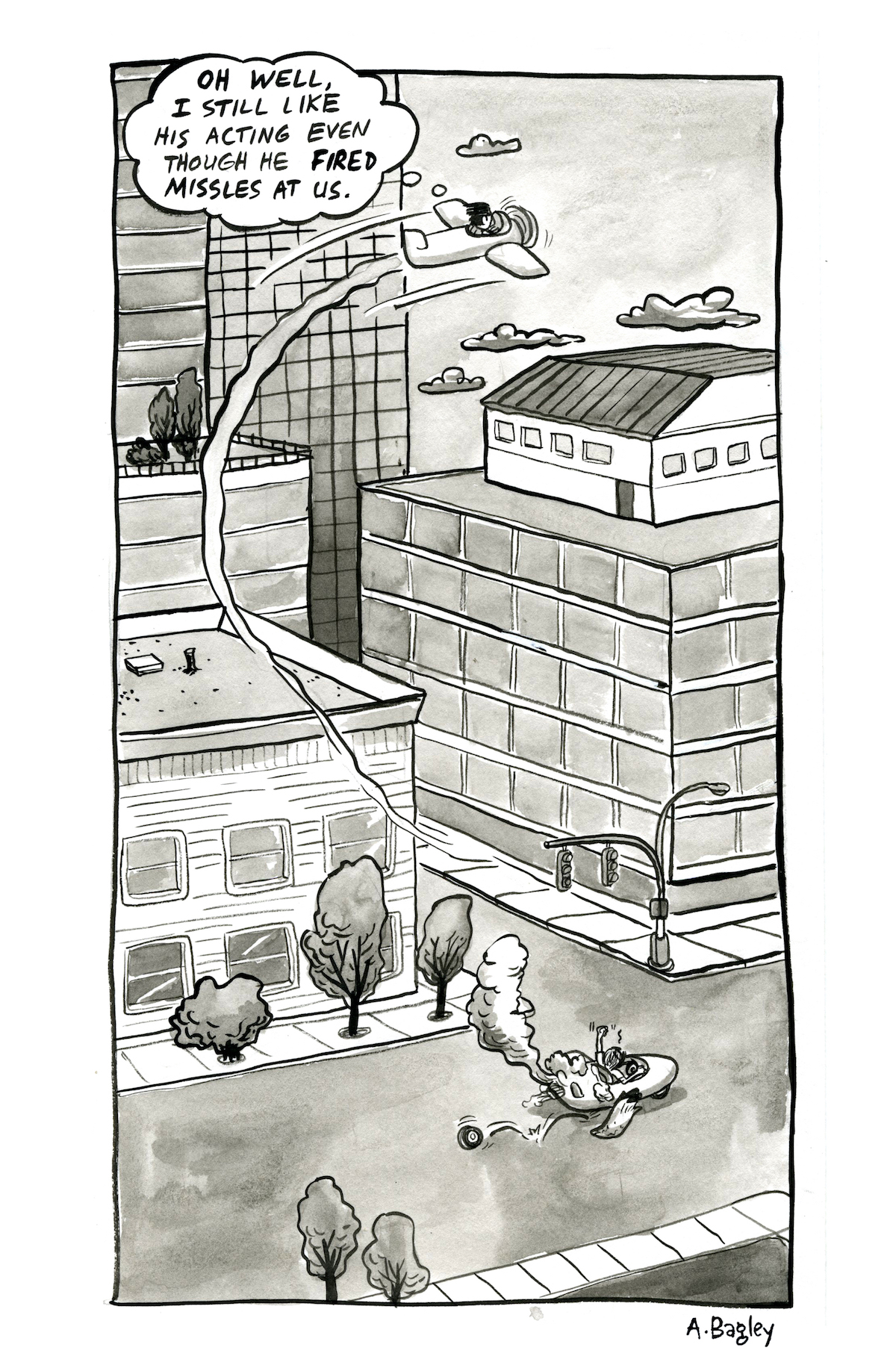Tonight's Words West reading benefits one of Seattle's best neighborhood independent coffee shops

Image from the C&P Coffee Company website.
For the entirety of its four-year existence, the Words West Literary series has been housed out of an independent West Seattle coffee shop called the C&P Coffee Company. Words West cofounder Susan Rich tells me over the phone that “C&P was the obvious place for us to hold these events because it's the heart of the community of West Seattle —not just the literary community, but the music community, the political activism community, the small business community.”
“That place is [Words West’s] heart,” Rich says, “so it has been really upsetting to get the news.” For 15 years, C&P has operated out of a cozy house on California Avenue; earlier this month, C&P’s landlords put the property on the market for 1.2 million dollars. The owners of the coffee shop were taken by surprise by this development, and they have started a GoFundMe to raise the down payment.
Rich says that C&P has been a “fantastic,” generous host for the series, graciously housing a bookshelf full of books from every author who has attended a Words West reading through the years. So now Words West is trying to return the favor. At tonight’s event, Words West will be collecting donations to add to C&P’s GoFundMe campaign.
“Once a neighborhood loses it soul, it's impossible to get it back again.”
“[C&P owners] Pete and Cam [Moores] have given so much of themselves to their neighbors,” Rich says. They’ve raised money for neighbors who lost their homes to fire, and Rich says that in addition to the readings and live music and community conversations, C&P has hosted “weddings, birthday parties, funerals and book launches.” For a neighborhood-specific reading series like Words West, which bills itself as a celebration of West Seattle literature, Rich says protecting C&P is more than just the right thing to do—it’s a call to arms. “Once a neighborhood loses it soul, it's impossible to get it back again,” she tells me.
Tonight’s very special Words West reading features Seattle-area librarian, literacy advocate, and novelist Nancy Pearl. Rich says she paired Pearl with another venerable Seattle literary figure: “Susan Landgraf is a poet, and a fiction writer, and a former journalist” who has recently become a published author for the first time. Rich can’t contain the wonder in her voice when she talks about Landgraf: “Without giving away her exact age, she's over 70 and she's publishing her first full book of poems and then a book of writing exercises. So, you know, 70 is the new 30.”
What should people who haven’t attended Words West before come to expect from the series if they show up tonight? “Okay, so I'm biased, but I do believe it's the best reading series in the city,” Rich says. The format is a little different from your standard reading: “We do what's called a living anthology, where instead of one writer reading her work and then going to the next writer, we ask them to, in some way, go back and forth between their work.” It’s a more “collaborative” approach, putting the authors in conversation rather than keeping them in silos. Tonight’s theme is on New Year’s resolutions, kept and broken.
You don’t have to be a West Seattleite to attend Words West, Rich says. “I think sometimes people are a little afraid of getting to West Seattle, and I'll say that there's a [RapidRide C Line] bus stop directly in front of C&P Coffee from downtown. It's really accessible.” Seattle is one of the only cities in the country — maybe the only city in the country — that can sustain reading series in every one of its neighborhoods. But for those readings to thrive, they need independent places like C&P Coffee Company to house them, to give them a place to live. I hope you’ll consider supporting C&P’s GoFundMe if you can.
Mail Call for January 16, 2018

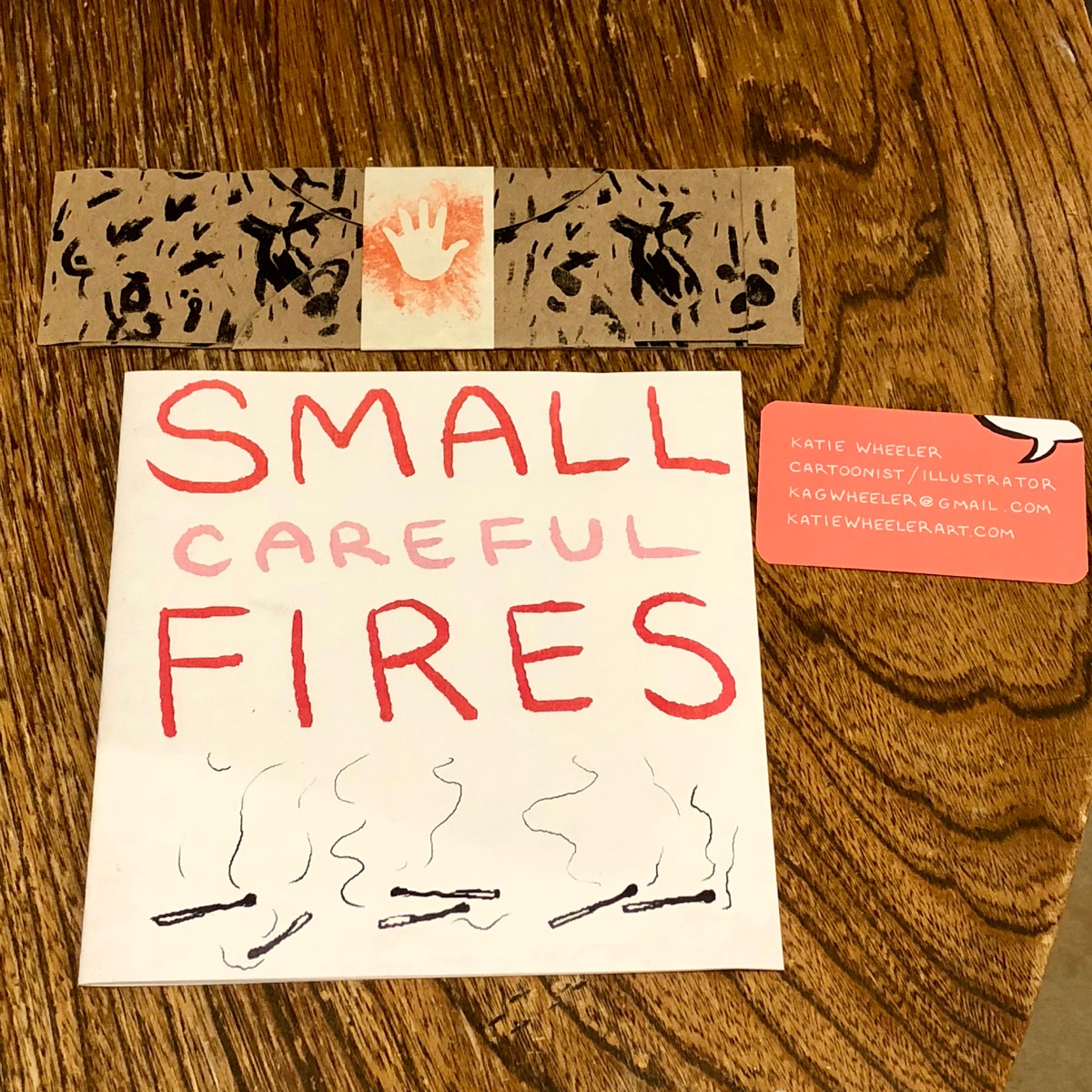
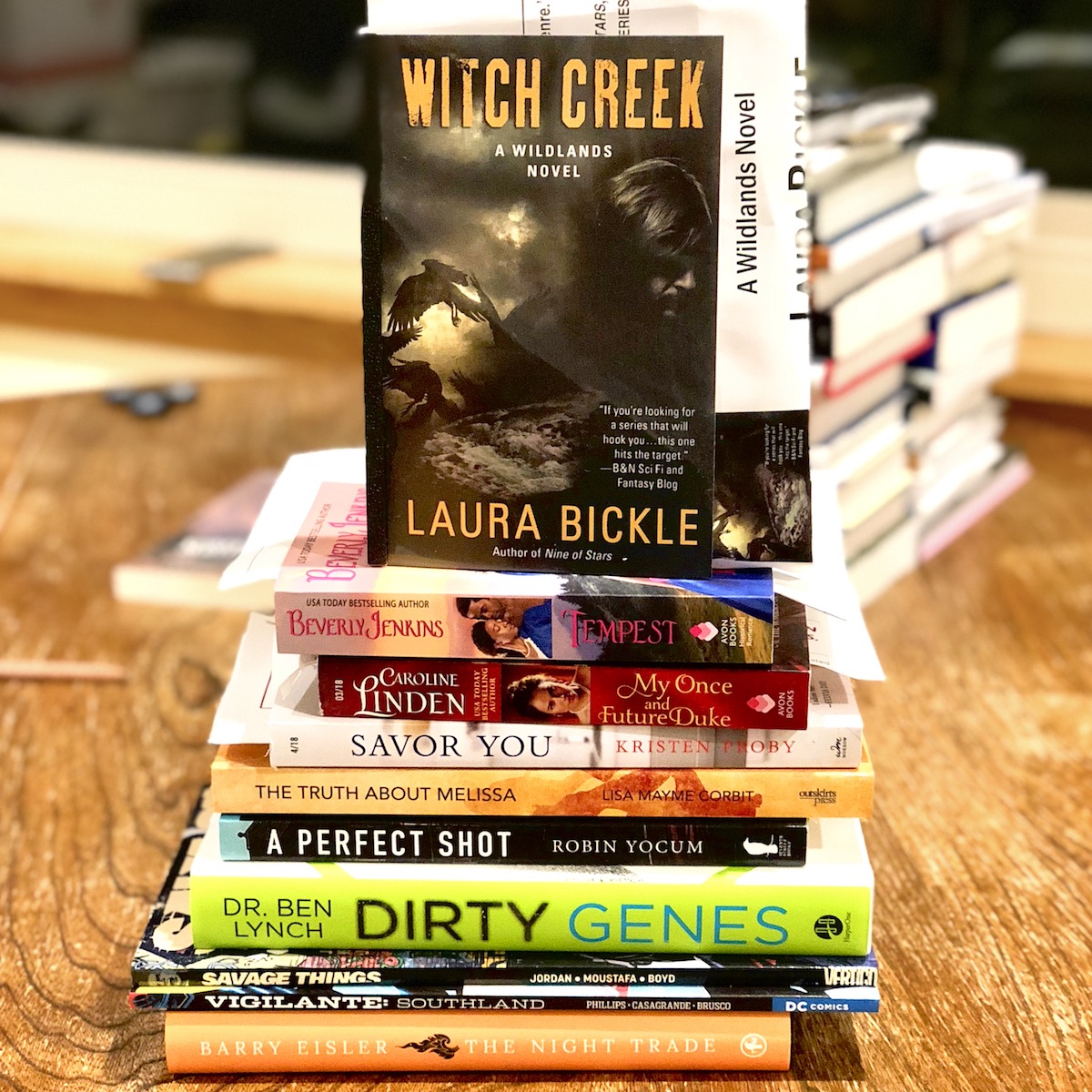
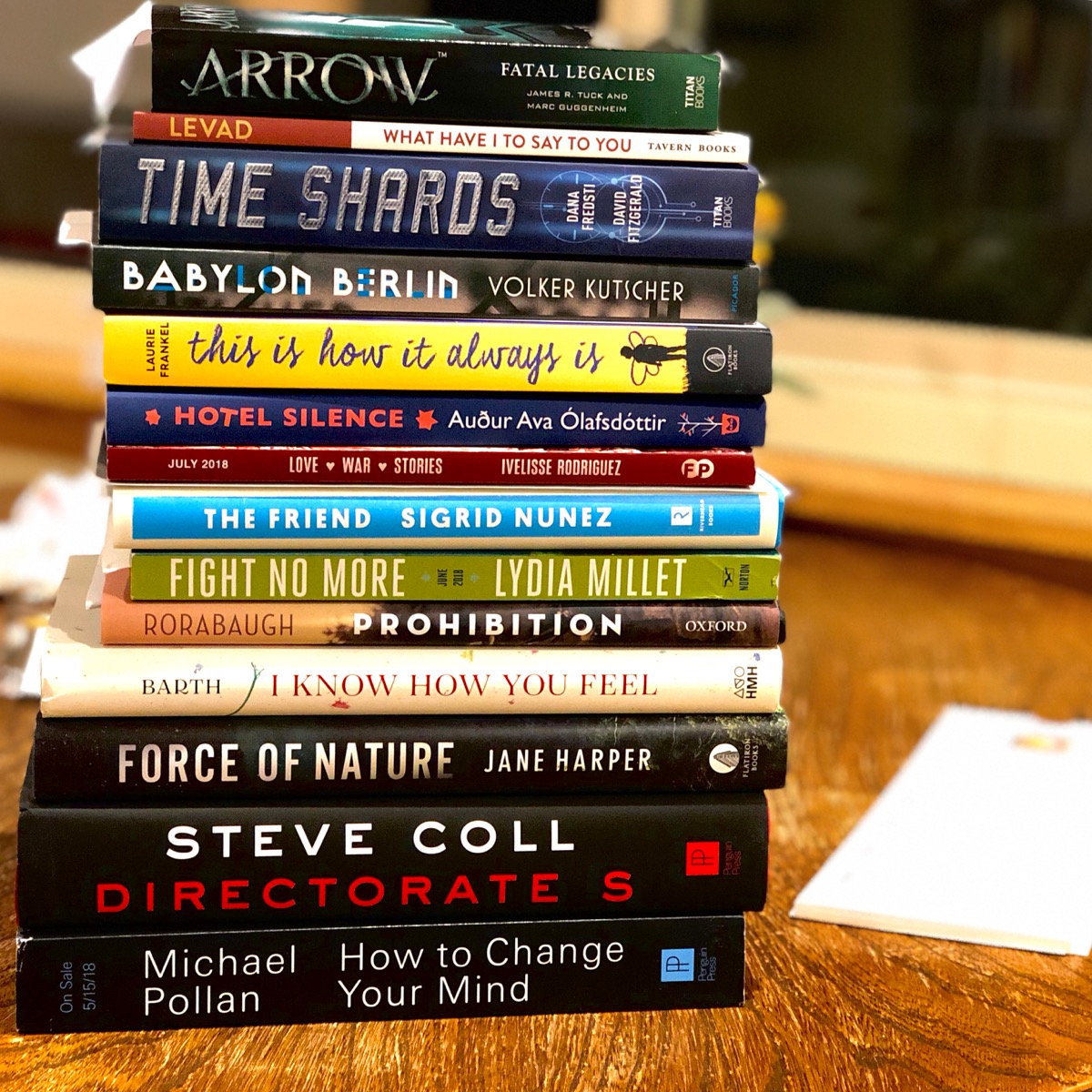
The Seattle Review of Books is currently accepting pitches for reviews. We’d love to hear from you — maybe on one of the books shown here, or another book you’re passionate about. Wondering what and how? Here’s what we’re looking for and how to pitch us.
This is not the plagiarism story you're looking for
Look, I think fan fiction is a great thing. People have been writing fan fiction for as long as there's been stories — you could make a very compelling case for playwrights and poets telling multiple versions of the same stories as an early draft of fan fiction.
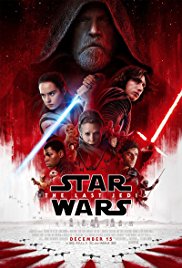
But there is a bit of a "controversy" circling the most recent Star Wars film, The Last Jedi, and I think it's ludicrous. Fans are claiming that Rian Johnson, the writer/director of Jedi, plagiarized the film from a work of fan fiction published right after the release of the first film in the modern Star Wars trilogy, The Force Awakens.
Here's a long post outlining the similarities between the film and the fan fiction. (Spoiler warning, obviously, if you haven't seen Jedi and still plan to.) The similarities include a character fighting with a staff, formerly deceased characters returning as ghosts, and an arrogant character being busted down to a lower rank due to their hotheaded nature. The post ends, "I think Lucasfilm has some explaining to do."
Look: the dirty little secret about writing is that ideas are impossibly cheap. An idea is nothing, and what most writers call "inspiration" is simply an idea that thinks a little too highly of itself. The fact is that if an idea ocurred to you, it has likely occurred to someone else. In writing, it's what you do with the idea that matters most.
Am I saying that nobody, in the history of writing, has ever plagiarized an idea from another writer? Of course not. You can find exceptions to prove the rule anywhere you look. But for a proven writer/director — Looper is one of the best original sci-fi films of recent years — to willingly crib ideas from a fan fiction that is relatively popular in the fan community for use in one of the most anticipated films of the decade would be a spectacular brand of career suicide.
Let's pretend for a moment that Johnson was trawling fan fiction for ideas for Jedi, even though most writers on an IP would likely avoid fan fiction as though it were poisonous for this very reason. And let's say Johnson did find the stories in this fan fiction to be absolutely irresistable. The most likely course of action then would be to track down the writer and get them a story credit on the film. That would be a much cheaper course of action than whatever the settlement from a plagiarism suit would cost.
Fan fiction is fun, and it's a great way to practice writing and build an audience. But to add another layer to fan fiction with an elaborate plagiarism conspiracy theory seems unproductive. We don't need more people on the internet crawling up their own butts like this. We need people writing and putting creativity into the world.
Literary inequality gap grows even larger
The New Statesman reports that it's getting harder than ever to make a living as a novelist in Great Britain:
In today’s market, selling 3,000 copies of your novel is not unrespectable – but factor in the average hardback price of £10.12 and the retailer’s 50 per cent cut, and just £15,000 remains to share between publisher, agent and author. No wonder that the percentage of authors earning a full-time living solely from writing dropped from 40 per cent in 2005 to 11.5 per cent in 2013.
Barring the few true literary superstars, writers have always needed a side hustle just to get by. But an abundance of publishing options has left most writers with a smaller share of the pie, and money doesn't go as far anymore.
The truth is, this is less of a publishing story and more of an economic inequality story. A true and just society would allow more citizens to follow their dreams — and not just if their dreams involve making some shitty app that sells advertising on the back of a huge user base. Until we fix these problems, it's not going to get any easier to make a living through following your dreams.
Coincidentally, we're talking about economic inequality in next month's Reading Through It Book Club at Third Place Books Seward Park. We'll be discussing Robert Reich's cartoon guidebook to economics, Economics in Wonderland, which is published by Seattle's own Fantagraphics Books. If you want to get a basic understanding of the forces that are making everything shittier for everyone, you should RSVP on Facebook and then drop by.
Banana Res Publica
So the candidate
Is less than candid
And the office holder
Heavy handed,While the Senate
Dabbles in senility
And the city feeds
On incivility.When fact is fiction,
Faction fact,
What tribute
Should the tribe exact?Few words follow
Veni vidi vici veto.
Forensics
Stuffs its face with CheetosLike rodents
Gnawing at a rostrum.
The Social Wars —
Now there’s a customAny pleb can get behind.
Time again to face the nation.
One in ten
Is decimation.
In this week's sponsor sample, meet a warrior with a heart and a mission
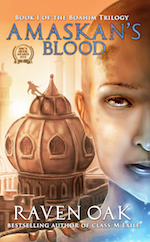
The excerpt, a boudoir scene with a twist — a potentially deadly one — introduces the warrior's story, though not the woman herself. It's the perfect entry point to the series, with the second book (Amaskan's War) due out in 2018, and a very satisfying read. Check it out on our sponsorship page.
Sponsors like Grey Sun Press make the Seattle Review of Books possible. Did you know you could sponsor us, as well? If you have a book, event, or opportunity you’d like to get in front of our readers, reserve your dates now. The first half of the year is almost gone; snap up the last spots while you can.
Your Week in Readings: The best literary events from January 15th - January 21st
Monday, January 15: The Silence of Our Friends Reading
See our Event of the Week column for more details. Elliott Bay Book Company, 1521 10th Ave, 624-6600, http://elliottbaybook.com, 7 pm, free.Tuesday, January 16: Chain Letter S2 V1: A New Chain
The second year of the popular Chain Letter reading series begins in earnest on Capitol Hill. Tonight’s readers are next month’s event curators. Here are a whole bunch of exciting new names: C.C. Hannett, Ray Stoeve, Brilligh, and J’owl. I don’t know any of these poets, but I’m excited to learn more. Vermillion Art Gallery and Bar, 1508 11th Ave., 709-9797, http://vermillionseattle.com, 7 pm, free.Wednesday, January 17: Red Clocks Reading
Elliott Bay 7 pm Portland author Leni Zumas’s second novel centers around five women in a post-apocalyptic Pacific Northwest where abortion has been made illegal again. For Mike Pence, this is a happy ending; for the rest of us, it’s a nightmare. Elliott Bay Book Company, 1521 10th Ave, 624-6600, http://elliottbaybook.com, 7 pm, free.Thursday, January 18: Her Body and Other Parties Reading
Author Carmen Maria Machado reads from her celebrated debut collection of short stories, Her Body and Other Parties. It’s a book that crosses lines from sci-fi to horror to thriller to odd Law & Order: Special Victims Unit parodies. Seattle Public Library, 1000 4th Ave., 386-4636, http://spl.org, 7 pm, free.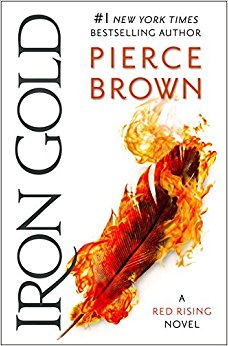
Friday, January 19: Iron Gold Reading
Science fiction author Pierce Brown debuts a new phase of his Red Rising sci-fi series. A war hero finds new relevance in Iron Gold. Tonight, Brown will be in conversation with Seattle-area fantasy author Terry Brooks. University Temple, 1415 NE 43rd St,634-3400, http://www2.bookstore.washington.edu/, 7 pm, $28.Saturday, January 20: Killing Marias Reading
Seattle’s first Civic Poet, Claudia Castro Luna, is now on her way to becoming Washington State’s next Poet Laureate. Tonight, she reads from her latest collection, which was published late last year by the amazing Two Sylvias press. Elliott Bay Book Company, 1521 10th Ave, 624-6600, http://elliottbaybook.com, 7 pm, free.Sunday, January 21: Jack Straw Winter Showcase
Jack Straw helps writers and performers better convey their work in live and recorded settings. Tonight, Jack Straw artists including Leilani Lewis, Tai Shan, and ilvs strauss will perform new works intended to showcase the breadth of Jack Straw’s portfolio. Jack Straw Gallery, 4261 Roosevelt Way N.E., 634-0919, http://jackstraw.org, 2 pm, free.Literary Event of the Week: Silence of our Friends reading at Elliott Bay Book Company
Jim Demonakos is best known in the city as a comic shop owner and the founder of the mighty Emerald City Comic Con. But since he’s sold the show to international convention promoter ReedPOP and stepped back from the organization, Demonakos has time to move to the other side of the comics industry — focusing on his work as a writer. Tonight at Elliott Bay, he celebrates one of his early works.
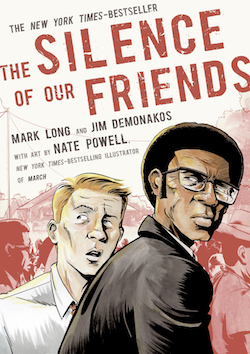
Co-authored with writer and video game designer Mark Long, Demonakos’s book The Silence of Our Friends, is named after a famous quote from Martin Luther King, Jr. (“In the End, we will remember not the words of our enemies, but the silence of our friends.") It’s a slightly fictionalized account of Long’s childhood in 1967 Texas, and it’s about the struggle of a white family — based on Long’s — and a Black family trying to free five young Black students who were unjustly taken into custody for the death of a cop.
Silence was originally published in 2012 by First Second, which has become one of the most consistently high-quality young adult comics presses in the business. It’s drawn by Nate Powell, who went on to illustrate Congressman John Lewis’s award-winning memoir comic about the civil rights movement, March.
Silence is being re-released this month by mass-market YA comics publisher Square Fish, and it couldn’t be revived at a better time. The points addressed in this book — of criminal justice reform, of the bland suburban face of white supremacy, of the importance of a free press and activism — are more relevant today than they were on the day the book was published.
Elliott Bay Book Company, 1521 10th Ave, 624-6600, http://elliottbaybook.com, 7 pm, free.
The Sunday Post for January 14, 2018
Each week, the Sunday Post highlights a few articles we enjoyed this week, good for consumption over a cup of coffee (or tea, if that’s your pleasure). Settle in for a while; we saved you a seat. You can also look through the archives.
A journey through a land of extreme poverty: welcome to America
The Guardian’s Ed Pilkington spent two weeks walking America up and down with Prof. Philip Alston, UN monitor for extreme poverty and human rights, documenting what it’s like to be poor in this country. The article is a little long in the tooth (published all the way back in December 2017!) but too fitting to miss this week, too strong a reminder that poverty and despair are anything but alien in this Great (cough) Nation of ours — and more important, at whose door to lay the blame.
Think of it as payback time. As the UN special rapporteur himself put it: "Washington is very keen for me to point out the poverty and human rights failings in other countries. This time I’m in the US."
Alternate take: Electric Literature’s roundup of books by writers from the countries Donald Trump most recently targeted with his racist, anti-human, dull-minded bullying.
The Good War
I once studied with a man who fought in World War II — a Coleridge contrarian, a comic book writer, a quiz show winner, and a man who, captured at the Battle of the Bulge, led a lecture series in the camp where he was held to keep himself and the other prisoners sane. Watching Saving Private Ryan, he said, was almost impossible for two reasons: because the opening scene brought his memories of battle back too vividly; and because the jingoistic patriotism of the movie was so opposed to his own complicated feelings about the war and America’s role in it.
Mike Dawson and Chris Hayes have a brilliant graphic essay in The Nib against lionizing the Greatest Generation and the war they fought — against knitting those stories into a cover under which we hide injustice and cruelty and smother dissent. I know at least one member of that generation who would have heartily agreed with everything they have to say.
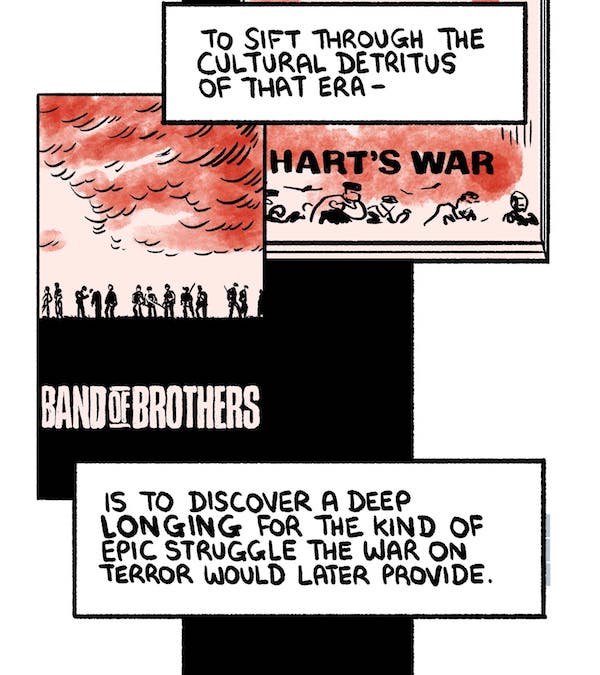
I Made the Pizza Cinnamon Rolls from Mario Batali’s Sexual Misconduct Apology Letter
In this piece that’s already been read by every human on the internet, but that I bet you’ll read again because it’s just that good, Geraldine DeRuiter skewers Mario Batali, bad apologies, and the patriarchy as a whole. While baking cinnamon rolls from scratch. There’s not an imperfect line in the entire damn thing.
I find myself fluctuating between apathy and anger as I try to follow Batali’s recipe, which is sparse on details. The base of the rolls is pizza dough — Batali notes that you can either buy it, or use his recipe to make your own.
I make my own, because I’m a woman, and for us there are no fucking shortcuts. We spend 25 years working our asses off to be the most qualified Presidential candidate in U.S. history and we get beaten out by a sexual deviant who likely needs to call the front desk for help when he’s trying to order pornos in his hotel room.
Donald Trump is President, so I’m making the goddamn dough by scratch.
Letter to My Younger Self
And finally! What do I love as much as baked goods? Sports. I own t-shirts dedicated to my passion for the entire spectrum, from golf to water polo. Okay, it’s one t-shirt, and it’s a bit snarky, and I’m sorry, I know it’s a personal failing but I’ve tried and I just can’t.
Nevertheless, I loved Quentin Richardson’s letter to the basketball player as a young man, especially because what it celebrates is not being the best, but simply being good enough to give the best a run for their money. I’d be happy with that. I think we all should be.
If you’d rather not be inspired in a miraculously un-sappy way, read this other thing about meeting your past in a dark alley: Matt Gemmel on finding his own suicide note years later.
But first read this.
You gotta be a dog to come out of Chicago. I mean, remember in the third grade when that kid stole your Hostess doughnut right off your lunch tray?
You could have just accepted it.
I mean, it was just a doughnut. The plain powder one.
But what did you do? You got up, snatched the doughnut right out of his hands and punched him with the damn doughnut. You gave that dude a doughnut-punch. Powder all up in his hair and everything.
It wasn’t about the doughnut, man. It was about the principle.
Whatcha Reading, Leni Zumas?
Every week we ask an interesting figure what they're digging into. Have ideas who we should reach out to? Let it fly: info@seattlereviewofbooks.com. Want to read more? Check out the archives.
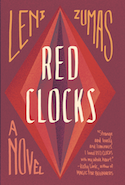
Portland writer Leni Zumas is author of the 2008 story collection Farewell Navigator and the 2012 novel The Listeners. Her latest novel, Red Clocks, is being released by Little, Brown this Tuesday, the 16th. She'll be appearing the following evening, Wednesday the 17th, at the Elliott Bay Book Company at 7:00pm.
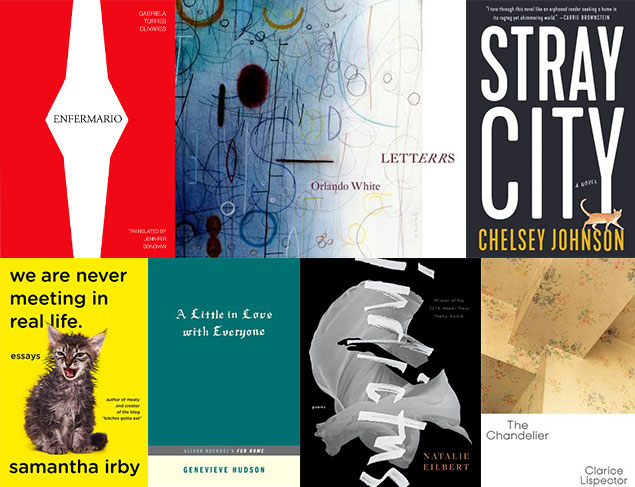
What are you reading now?
A gorgeous and gutting book of fictions called Enfermario, by Gabriela Torres Olivares, translated by Jennifer Donovan — full of bodies leaking, aching, desiring, refusing — and an exquisite poetry collection by Orlando White, who is Diné of the Naaneesht’ézhi Tábaahí and born for the Naakai Diné’e. LETTERRS maps the origins, ruptures, and wounds of language.
What did you read last?
I just finished Chelsey Johnson’s terrific debut, Stray City, which is a smart, funny, politically astute novel set in punk-lesbian 90s Portland. Another recent favorite is Samantha Irby’s knife-to-the-ribs essay collection We Are Never Meeting in Real Life. I adore this book, and find myself looking for any chance to use her phrase “organizing my ketchups.”
What are you reading next?
At the top of my list is A Little in Love with Everyone by Genevieve Hudson, a hybrid memoir/commentary on Alison Bechdel’s Fun Home. I’m also looking forward to Natalie Eilbert’s poetry collection Indictus and to the first English translation of Clarice Lispector’s 1946 novel O Lustre (The Chandelier), which comes out in March.
The Help Desk: Wiccans need love, too
Every Friday, Cienna Madrid offers solutions to life’s most vexing literary problems. Do you need a book recommendation to send your worst cousin on her birthday? Is it okay to read erotica on public transit? Cienna can help. Send your questions to advice@seattlereviewofbooks.com. The following is an encore presentation of a Help Desk column from 2015.
Dear Cienna,
My mother just came out as Wiccan at 62. Dead serious. What the fuck am I supposed to do about this? Is there any book in the world that can help me unfuck this pile of candles and Stevie Nicks lace?
Verlaine, Wallingford
Dear Verlaine,
I understand your horror. Just last weekend my own dear mother let it slip that she’s interested in butt play. While I’m fully supportive of her curiosity in the abstract, there are some things daughters are better off not knowing. Those things include butt play and the belief that mortals can control the wind.
I have a few suggestions for you, all of them outstanding. First, buy this book: When Someone You Love is Wiccan. Reading it is optional. Crack the spine in a few places and put it next to your toilet where your mother is sure to see it, just as I nailed a butt plug to an old swing in my mother’s front yard to express my support of her alternative lifestyle.
Then, when your mother next brings up witchcraft, gently steer the conversation towards Satanism. It could be that your mother is lonely. Maybe she’s frustrated by the current state of American politics, repulsed by organized religion, and therefore susceptible to the conviction that chanting beneath the light of a waning gibbous will ward away chin hairs and parking tickets.
But is she aware of the fantastic work the Satanic Temple has spearheaded lately? They’ve countered anti-abortion Planned Parenthoods demonstrations in cities like Detroit, drafted a “religious exemption” letter to combat anti-abortion laws in states that attempt to dissuade women from ending a pregnancy, and lobbied to erect statues of the goat-headed deity Baphomet in states like Arkansas that allow for monuments of the Ten Commandments to be placed on Capitol grounds.
As you can see, the Satanic Temple is an incredibly active organization – perfect for a perhaps lonely older woman looking to join a new community. Plus, Satanists love candles!
Ask your mother to mull it over, while also acknowledging that religion and butt play are two very personal choices that mothers must make for themselves. If, in the end, she decides that she would rather believe that a clutch of candles and a prayer can influence the tides, bless her heart and buy her a fire extinguisher.
xoxo,
Cienna
Portrait Gallery: Chloe Benjamin
Each week, Christine Larsen creates a new portrait of an author for us. Have any favorites you’d love to see immortalized? Let us know
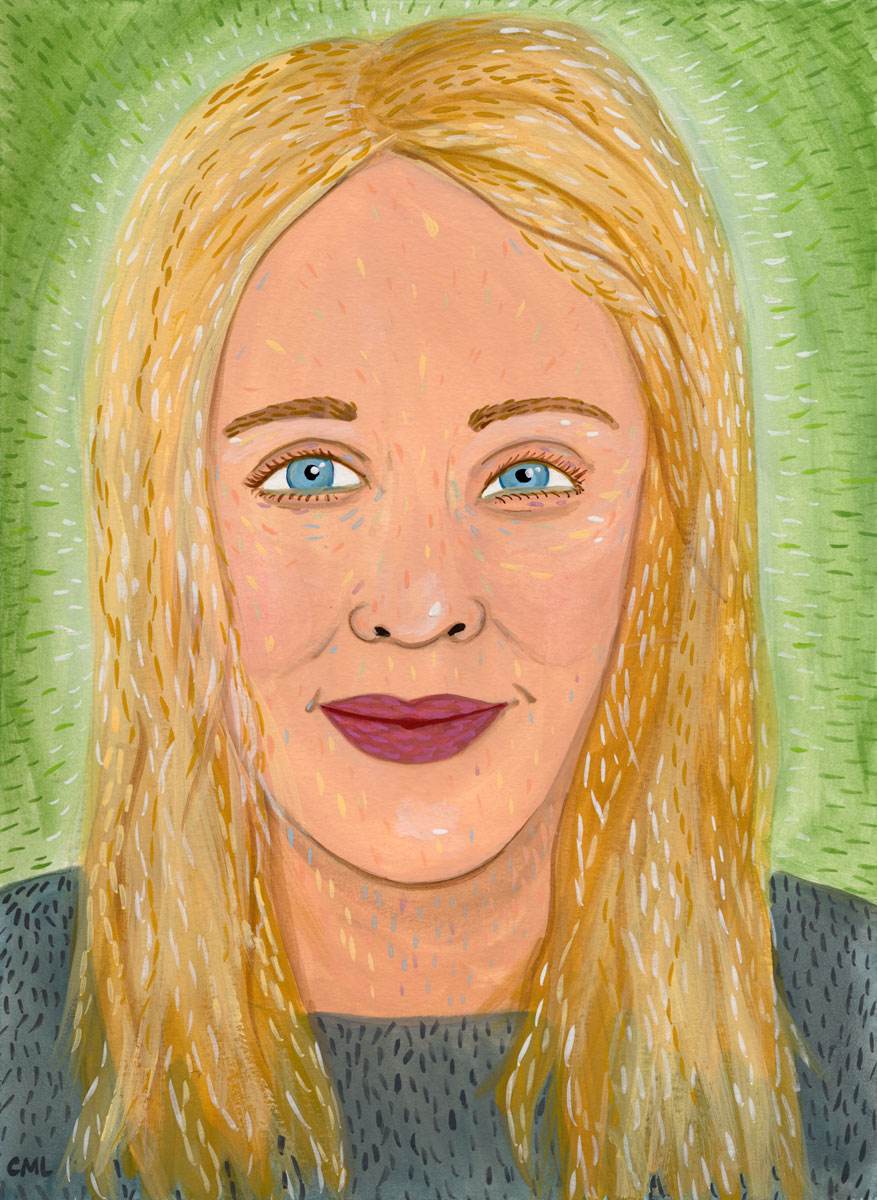
Thursday, January 11: The Immortalists Reading*
Author Chloe Benjamin’s latest novel, The Immortalists, is about a mystical prophecy that foretells death. It’s a clever addition to the genre of fiction based around the primal thought experiment centered around what you would do if you knew the exact date and time of your death.
Elliott Bay Book Company, 1521 10th Ave, 624-6600, http://elliottbaybook.com, 7 pm, free.*
Book News Roundup: A King of Joy, a book bunker, and a chance to win a Washington State Book Award
Congratulations to You Private Person author Richard Chiem, whose debut novel, King of Joy, has been bought by Soft Skull Press. According to the press info, it's "a story of survival and revenge, which follows a woman whose grief for her dead husband leads her to a pronographers underground studio in the woods."
On their site today, Capitol Hill Seattle blog highlights newly reopened used bookstore Horizon Books. Tonight from 5 to 9, Horizon is featuring a spoken word reading with music and art from Rani Laik. CHS reports that Horizon's goal is to build "the most strange & unique book bunkers in all of Seattle."
If you're a Washington state author who published a book in the year 2017, you should submit your book right now to the Washington State Book Awards. The deadline is February 1st, so get down to it.
Future Alternative Past: Sound it out
Every month, Nisi Shawl presents us with news and updates from her perch overlooking the world of science-fiction, fantasy, and horror. You can also look through the archives of the column.
Music of the spheres
Whenever I give an SFFH reading I also sing. And at their public readings, Pan Morigan and Andrea Hairston sing and play original songs inspired by Andrea’s novel Redwood and Wildfire.
No one knows how or why music so easily evokes emotions, but we three are certainly not above using it to do so. If I want people to long for an age yet to come I repurpose the lyrics of “Ode to Billy Joe” or rewrite a lullaby I learned off a Miriam Makeba record. Andrea, Pan, and I aim our skiffy at your earhole, and we’re not the only ones.
In fact, there’s a whole aesthetic movement, Afrofuturism, highlighting the connections between all Afrodiasporic art forms and speculative fiction. The musical groups Sun Ra Arkestra and Parliament-Funkadelic are foundational Afrofuturists: in the 1950s, Sun Ra traced his origins to Saturn; and Parliament-Funkadelic invoked a Mothership connection many a 1970s freakazoid knew in their alien(ated) heart to be true. Not just knee-deep, they were totally deep, and Jimi Hendrix’s homages to the genre range from the black magic fantasies of “Voodoo Child (Slight Return)” to his Philip José Farmer-inspired "Purple Haze." Michael Jackson’s songs provide a similarly wide spectrum: there’s the horror-evoking zombie menace in “Thriller” and the intergalactic love revolt of Captain Eo framing “Another Part of Me.” Prince not only read and sang speculative fiction, he embodied it. Present day Afrofuturists include Janelle Monae, who sings of androids, and Seattle DJ and author Gabriel Teodros, contributor to the anthology Octavia’s Brood and to CopperWire’s “hip-hop space opera” Earthbound.
And of course the intersection of SFFH and music extends beyond Afrofuturism. Certain of the lyrics to Steely Dan’s 1977 hit “Deacon Blues” derive from Alfred Bester’s classic SF novel The Demolished Man; the band’s name itself is taken from that of a dildo central to William S. Burroughs’s phantasmagoric Naked Lunch. David Bowie’s Ziggy Stardust metasaga explores the life of a glamrock star modeled on Bowie himself, and while it’s not strictly sfnal, it intimately concerns the ties between music and imaginative fiction. Which are everywhere, once you start looking: punk rocker Poly Styrene belting out “The Day the World Turned Dayglo,” Rocky Horror Picture Show’s Tim Curry exhorting us to do the Time Warp, Queen Bey calling for a ring to adorn her robot hand. Everywhere, musicians invoke SFFH.
And the reverse? Writers of SFFH inspired by music?
Early in my creative process I will often steal titles, settings, and incidents from songs — sometimes making off with entire plots, as when I lifted the storyline of a 16th century English ballad for “Cruel Sistah” (Later I wrote the lyrics to the blues my ghost sings at its climax).
A brief survey of my fellow social media addicts yielded dozens of similar anecdotes. Writers take inspiration where we can find it, from Television’s “Marquee Moon” (Stamping Butterflies by Jon Courtenay Grimwood) to Beethoven’s Ninth (“The Ninth Symphony of Ludwig Van Beethoven and Other Lost Songs” by Carter Scholz). Whole volumes are devoted to the concept, like Stars, a tribute anthology composed (hah!) of stories focused on specific Janis Ian songs.
SFFH authors put together playlists of music we listen to while writing particular stories; we write about instruments only nonhumans have the physical capability to play; we pen national anthems for imaginary countries and revolutionary hymns for nonexistent religions. We dance about extrasolar architecture.
Someone should probably write a book about it.
Recent books recently read
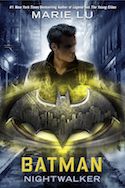
Marie Lu is best known for writing dystopian YA, but it’s not much of a leap from that subgenre to Batman: Nightwalker (Random House). Lu’s latest novel is full of urban grit and darkness, and at just-turning-18, Bruce Wayne’s appeal to Lu’s target audience couldn’t be more powerful. My high school sophomore niece said she hated me when I showed her my limited edition’s poster insert celebrating his hunkiness. At 62, I’m less vulnerable to those sorts of attractions, but the book’s first line hooked me: “The blood underneath her nails bothered her.” Ambiguously villainesque Madeleine Wallace is a perturbing and therefore appropriate opponent for a Bruce Wayne still battling the unacknowledged trauma of his parents’ recent death. Rich and isolated, gadget-loving and anti-authoritarian, Lu’s hero is a completely plausible adolescent version of comics’ favorite vigilante.
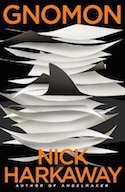
Nick Harkaway’s Gnomon (Knopf) combines, like Lu’s Batman, the self-sacrificing purity of an ethical investigator and a fascination with horizon-adjacent technology. And that’s about all the two books have in common. One is relatively straightforward, the equation to which a wave reduces; the other is as complex as the treasure-filled history of life beneath the sea. Broken-fingered Ethiopian artists; scheming, boastful, lovelorn math geniuses; and gigantic shark spirits roam the pages of Harkaway’s magnificent epic in hypnotically recursive patterns. Ostensibly it’s about the suspicious death of a dissident in a hyper-surveilled society, but there’s no way a mere synopsis or review can do Gnomon justice; the author himself admits that this book is too big to have ever fit in his all-too-human head. It must suffice simply to say that reading Gnomon will change you, and that afterwards you’ll be content with having changed.
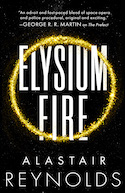
Elysium Fire (Orbit) by Alastair Reynolds also occupies that sweet spot found between police procedurals and science fiction. A sequel to The Prefect, it pits the Panoply, a sort of omnipresent, laissez-faire police force, against an epidemic of inexplicable, brain-frying murders. 25th century civilization comprises thousands of habitats orbiting the planet Yellowstone, and constant, electronically-aided polling makes for a true democracy. Dogged by the climbing death rate and a rabble-rousing secessionist, Prefect Tom Dreyfus and operatives Thalia Ng and Sparver (a genetically enhanced pig) struggle to preserve the integrity of their far-flung beat. Their struggles would be stranger and yet more enjoyable if Reynolds’ accounts of inevitable social change kept up with his depictions of the high tech ubiquitous in this shimmering bubble of an outer space utopia. I didn't quite finish the novel by deadline. I'm going on with it now; I expect cool action, but no major cultural novelties.
Couple of upcoming cons
Looks like I’ll be giving the keynote speech next month at Amsterdam’s Other Future’s Festival. I highly suggest you get on over there, too. Other guests will includeNnedi Okorafor, the great Grace Dillon, and Wanuri Kahiu, director of the Kenyan science fiction film Pumzi. There’ll be music to listen to and movies to watch as well as talks to attend. Plus, you know, it’s in Amsterdam.
Closer to home, check out Escapade in Los Angeles, “The Slash Slumber Party!” Slash, in case you didn’t know, is fan-generated erotica pairing nominally het characters of the same sex: think Spock and Kirk nuzzling each other’s throats. Escapade’s also big on shipping and vids; shipping’s like slash with less of a homosexual mandate and a longer dramatic arc; and vids are fan-produced, music-coordinated, trailer-length films repurposing scenes from (usually) sfnal shows. Escapade features hours and hours of vidding premieres, uncensored.
Thursday Comics Hangover: Heavens to murgatroyd!
Friends, I'm going to make a bold announcement: It is quite possible that the best new series of 2018 from one of the big two "mainstream" comics publishers has already made its debut. The book in question was published last Wednesday — the first new comics day of the year — and I can't stop thinking about it.
And it's a comic book based on the old Hanna Barbera character Snagglepuss. Yes, that Snagglepuss:
Written by Mark Russell and illustrated by Mike Feehan and Mark Morales, Exit Stage Left: The Snagglepuss Chronicles is a new limited series that imagines Snagglepuss as a closeted gay playwright in the red-panic blacklist era.
This is the most literary comic I've read in ages. How literary? Dorothy Parker is a main character in the first issue. "Personally, I always admired the Algonquin Round Table, the finest assemblage of wits in American history," Snagglepuss explains to a reporter outside a play. "As a young kit growing up in rural Mississippi, they were my Knights of the Round Table. New York, my Camelot." (The reporter then looks at the reader and announces, "a young lion makes good. Only in America!")
Much like Russell's amazing Flintstones comic from 2016, what should be a one-note joke instead plays out with intelligence, wit, and a strong moral core. Russell has got to be among the finest satirists in modern American comics — admittedly, it's not a crowded field — and his compassion for the character practically throbs off the page.
Stage Left isn't afraid to poke around in the darkest corners of post-WWII America. So what if every fifth character or so is an anthropomorphized dog or cat or mouse? And who cares if those talking mammals don't wear pants? I'm not sure if the whys and hows of Snagglepuss's world will ever be explained, or if there's a single unified theory of the satire. (Are the animals in human clothes supposed to represent the naivete of 1950s America? Uh, maybe?) But at this point, I'm having so much fun with the premise that I frankly don't care.
Book News Roundup: A new Seattle-area magazine! A new book from Ellen Forney! The same terrible old president!
It's not very often that a new media outlet debuts in Seattle, so let's pay attention to Unite Seattle, which went live today. They publish coverage of arts and news in Seattle with an eye toward LGBTQ issues — and they have a dedicated books page!
The president of the United States of America is still whining about how he should be able to ban a book because he doesn't like it.
Our current libel laws are a sham and a disgrace and do not represent American values or American fairness so we’re going to take a strong look at that... We are going to take a strong look at our country’s libel laws so that when somebody says something that is false and defamatory about someone, that person will have meaningful recourse in our courts.
- The year 2018 is not entirely a loss, friends. Seattle cartoonist Ellen Forney is publishing a book in May! From her Instagram, we get a sneak peek at the mockup of the cover:
On the other side of the wall
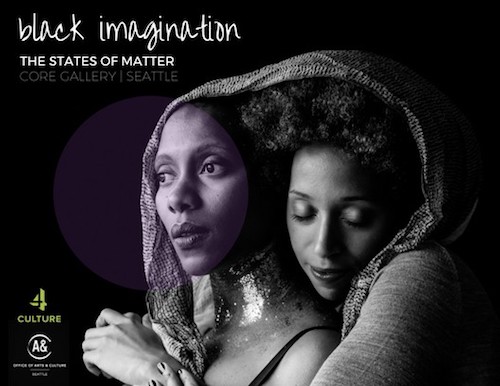
The woman at the door of the BLACK IMAGINATION: The States of Matter show at CORE Gallery asked me point blank: "are you a white man?" It was literally the first time in my entire life that anyone had ever asked me that question, and I had to pause for a minute.
"Uh, yes," I eventually replied. I'd been invited to the opening night "celebration of Black joy" from four Black Seattle storytellers — Natasha Marin, Imani Sims, Amber Flame, and Rachael Ferguson — and I hadn't been told about this part of the entry process. The doorperson explained that white people weren't allowed in the back half of the gallery tonight. That part was just for people of color. I could wander all I wanted around the front room, she said. And so I did.
A woman in an ornate dress sat on the floor, DJing the music. ("Don't Explain," by Billie Holliday, first, then "Whizzin' Away Along De Track.") In the other corner of the room, a woman listening to an iPod through headhphones drew on a piece of paper taped to the wall. "I WAS A STAR," one drawing of a cosmic firmament read. She'd occasionally stop to comb through her hair with an afro pick.
Behind a curtain, I could hear voices raised up in song. Laughter. Stories being told. Nothing came through too clearly, though; I couldn't hear the specifics. A tall white man stood by the curtain, and a Black woman gently explained to him, "white folks aren't allowed back there tonight." The man replied, seemingly instinctually, "okay, but..." and then he stopped talking. The point came through loud and clear, and he chuckled at himself, and then he walked away.
On the other side of the wall, people laughed raucously about something I couldn't hear.
"WE ALL TOOK CARE OF EACH OTHER," the woman wrote on another drawing while listening to a song I couldn't — that I wasn't meant to — hear.
Second time's the charm: Talking with Laurie Frankel about the pleasures and pains of paperbacks
Seattle author Laurie Frankel's novel This Is How It Always Is was one of my very favorite novels of last year. It's the gentle and big-hearted story of a mother who slowly realizes that her child is transgender, and the publisher made no secret of the fact that the story features at least some roots in reality: Frankel is the mother of a girl who was labeled a boy at birth. On Tuesday, January 23rd, Frankel is celebrating the paperback launch of This Is How It Always Is at the Seattle Public Library downtown. She was kind enough to talk to us about what an author experiences when her hardcover book becomes a paperback. What follows is a lightly edited transcript of our phone conversation.
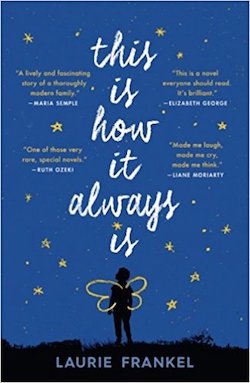
So, I just wanted to say first that I really love the book. And I especially love the way that it grew on me — the way that it just sort of stuck with me, and the experience of reading it grew in my mind long after I put the book down. And that doesn't always happen. I was wondering, for you as a writer, did the experience of writing this book feel different than other things you may have written in the past?
First of all, thank you so much — I appreciate it. And you know, I think they all feel different from one another. The primary emotion whilse writing a novel is dread. It is for me, in any case. And then this miracle happens in between the second and third revisions, where you realize this is going to come together.
It wasn't clear to me where this book was going when I started it. So that was a surprise. The way in which this story was going to overlap with my family's story was not clear to me going in. And, so, as that became clear as time went on, all of these other senses of dread came along with that first sense of dread.
Was this the most that you had used your own life in your writing?
In an obvious way, yes, for sure. I think that it's probably always true that novels have a good bit of their author's lives in them.
And I also think that these characters are not people I know — except for having spent a lot of time with them because I made them up. There are so many kids in this book, and I have only the one. That's such an enormous difference that I'm not wrong in feeling very removed from it — feeling that it was very made up.
And now it’s coming out in paperback. What is that experience like for an author? Does it feel like you're going through the publication process all over again?
Yes, that is exactly what it is like. The hardcover release is such a whirlwind. And I was on book tour on and off for nearly a year, so I was traveling a lot. I wasn't thinking about a paperback release at all.
But paperbacks are so different in the way they release it, and what your publisher does for it, and what they want you to do for it. Because this is likely to go out to a whole new audience, you have to prepare for all of that too.
Can you talk a little bit more about the differences between paperback and hardcover releases? I know you said there are different audiences, but I wonder if there are other differences. I think our readers might be interested in hearing about those.
Sure, totally. As you know, with hardcover releases, the focus is on getting reviews and placing articles in various publications to go along with the launch — to try to get the word out. Also, any kind of a tour is going to happen with the hardcover. And so, I've been doing all of that. And all of that is and has been really wonderful.
However, book clubs — almost across the board — have a rule that they only choose books that are in paperback. And I totally get that, because hardcover books are twice as much money as paperbacks if you're buying them from your local independent bookstore — God love you. This is a huge difference.
It’s a big difference in readership, because people who come to the hardcover events usually know something about [the book] and they sought it out. And people who come for the paperback are much more likely to have, say, seen it on a table in the bookstore and picked it up. Because doing that when the book is $30 is totally different than when the book is $14.
Or, they're in a book club and the book club picked the book. Or, they remember having seen it a year ago when it came out in the first place, and so, now here it is in front of them and they’re like, “oh yeah, sure, maybe I'll give that a shot.” So, it's much more likely that readers are coming to it without necessarily knowing what it's about, or having chosen to engage with that topic. And that's a whole different ball game.
I understand that not everything is drawn from your life, but the novel is in part uniquely based on your experience, and that was a part of the public discussion around the novel. I was wondering if you got a particularly personal response from readers — if readers responded in a different way?
Yes. I have gotten a lot — a lot, a lot — of email from parents who said, “wow, me too.” Lots of people who said, “thanks for writing about this, I thought I was the only one.” Lots of adults who said “wow, my experience was really different than this, and I'm really glad to hear that it's changing.” So that was all really great.
I also got a not insignificant amount of hate mail and death threats and that sort of thing. I suppose to speak to your last question, that’s part of my concern about what's upcoming. The hardcover was unlikely to fall into your hands if you weren't ready and eager to hear about what it was about.
And with the paperback, there’s that anxiety: okay, here we go again. And the paperback is opening up to a new audience, and that's so wonderful in so many ways. But there’s also this kernel of okay, who's going to write and yell at me now, and knowing what it feels like to get those emails in your inbox in the morning.
So are you working on something new now? Or are you still coasting on the high of publication?
Oh, Lord, no.
I didn't think so. But I always expect somebody to say "yes, I've just been relaxing nonstop" at some point, when I ask that question.
That's so funny. No, no. That high is such a complicated thing. No, I'm writing the next novel. I think I couldn't not be writing the next novel, at this point. I would be losing my mind if I were still thinking about a novel that is already in the can, and that I can't do anything about. So instead, I'm staying sane by quickly drafting the next one.
Book News Roundup: Restaurant suggestions from David Sedaris
- We got a very interesting call for submissions from PageBoy Magazine:
PageBoy Magazine is now accepting submissions for our upcoming (tenth!) issue. We are following our Writers on Writers issue with an issue devoted exclusively to 17 word poems, or "17s" ... Please send 5-10 of your best works in prose or poetry - as long as each is exactly and only 17 words short - to pageboymagazine@hotmail.com by March 15, 2018. We are open to any style, any voice, as long as it "works," so do whatever you like with the form. We're curious to see what you come up with!
The submission request goes on to explain that "17s are an old form, invented at Harry's Bar on 15th Ave E in Seattle during the fall of 2016." They "consist simply of 17 words, that is their ONLY constraint." I can't wait to see this issue.
The South Seattle Emerald interviews Alvin “LA” Horn, a self-described "grown and sexy" novelist from South Seattle who's reading at Third Place Books Seward Park on January 15th.
If you have a high tolerance for internet slideshows, the Seattle PI has a slideshow of the Seattle Public Library's most checked-out books of 2017 and it's very interesting.
There are a handful of tickets available to see David Sedaris read at Broadway Performance Hall tonight and tomorrow.
Speaking of Sedaris: earlier this week, he visited Poppy, a very good restaurant on Capitol Hill. They posted his suggestion card, which is packed with good advice. The real question is: why doesn't David Sedaris run a restaurant?
- And since we're still all talking about THAT Trump book, Masha Gessen's review of Fire and Fury is very worth your time.
